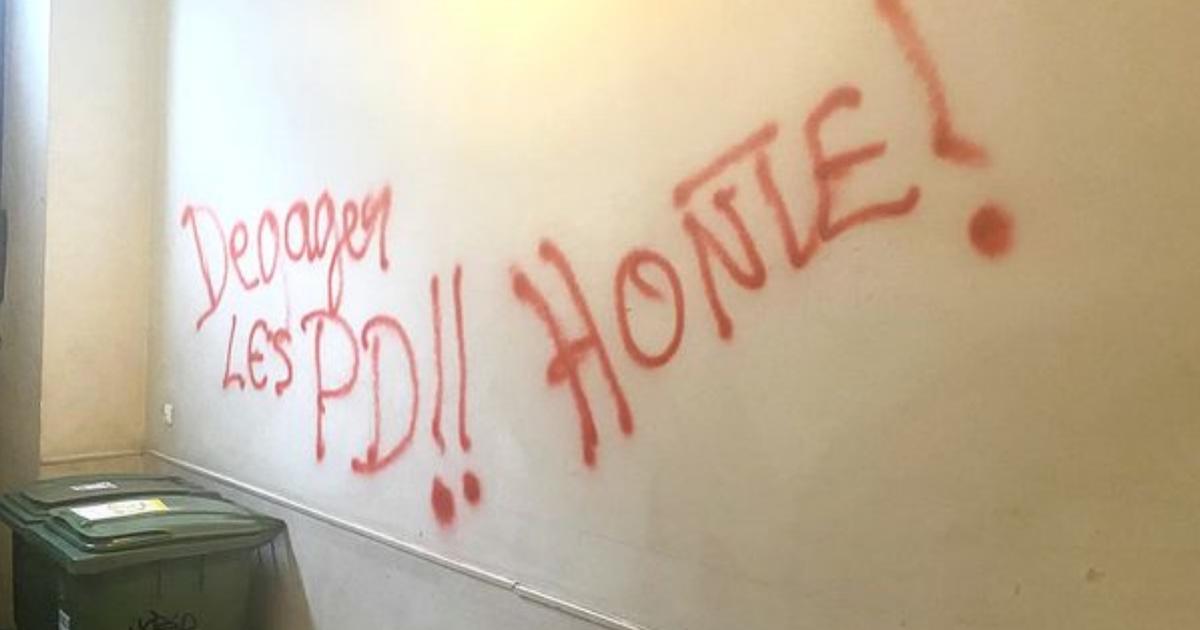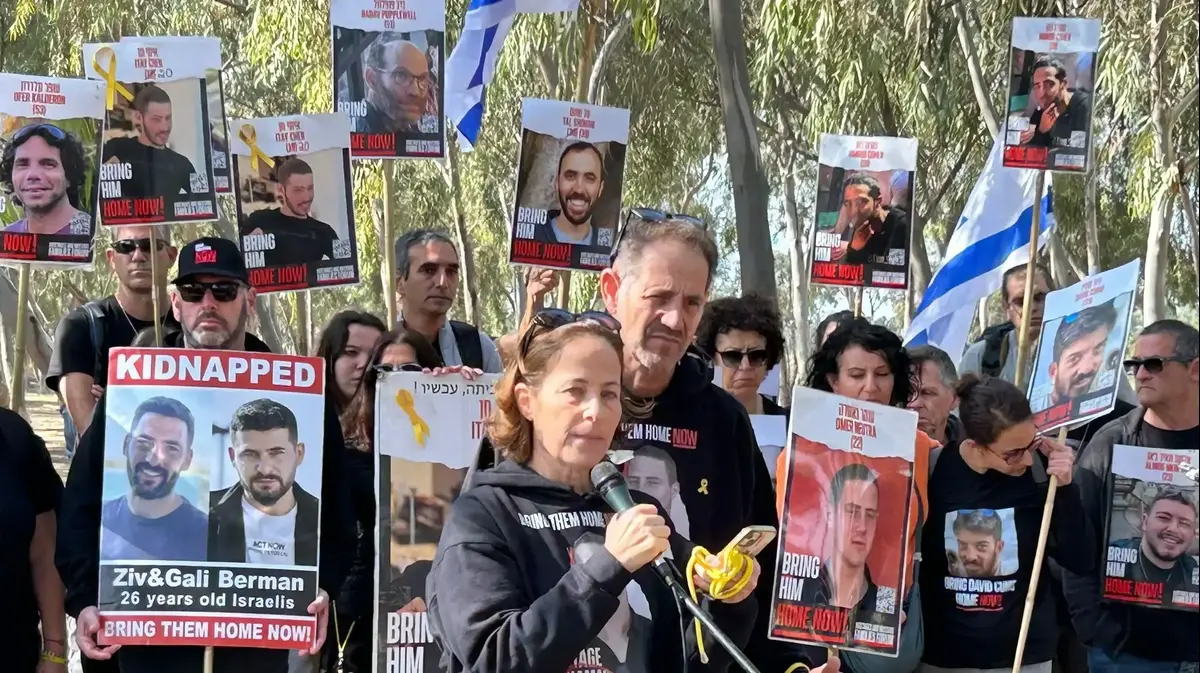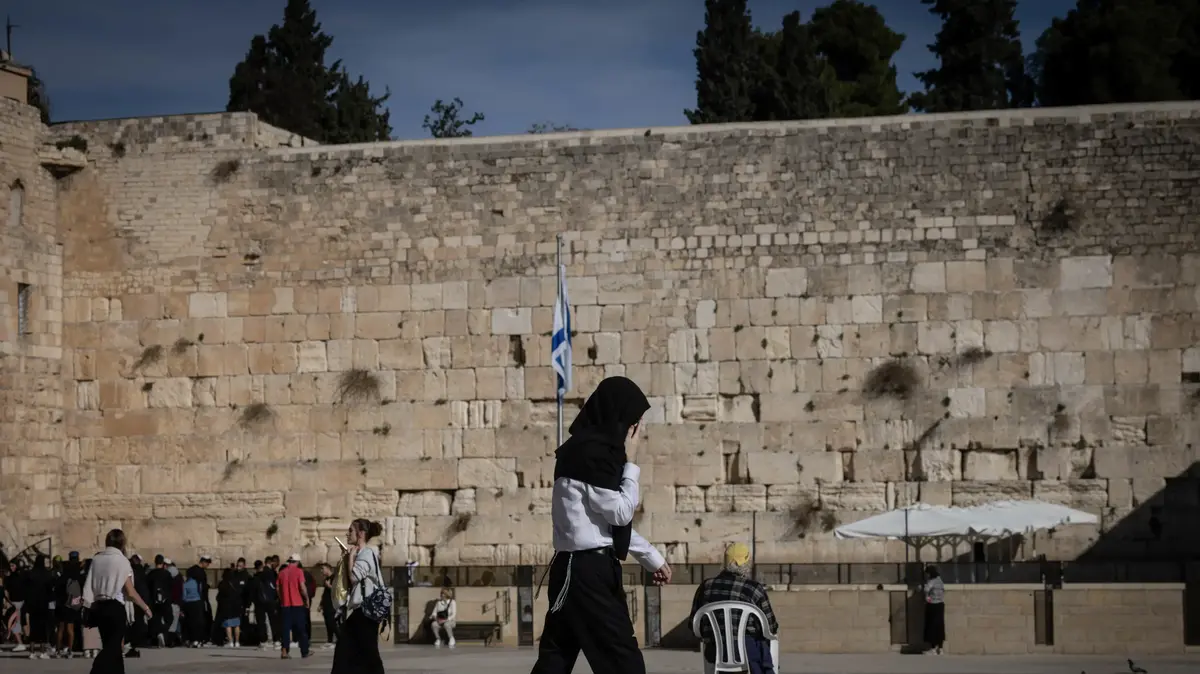The Pride March in Jerusalem has always been a kind of pike in Flanders, unlike the one in Tel Aviv, just 50 kilometers away, much more crowded and festive. In 2015, a radical ultra-Orthodox Jew, Yishai Schlissel, stabbed to death a 16-year-old participant, Shira Banki. The killer had just been released from prison for wounding three people in an identical attack a decade earlier. To the fear that stains the call since then has been added another this Thursday, to be celebrated with the most right-wing government in the history of Israel, and with the police that monitors the march under the command of Itamar Ben Gvir, a far-right minister who participated in a "March of the Beasts", a counter-event with donkeys and goats to compare homosexuals with farm animals.
In the same government, another minister, Bezalel Smotrich (Finance), has in the past defined himself as a "proud homophobe"; Legacy Amichai Eliyahu wrote an op-ed in 2018 on "LGBTQ+ terrorism and how to combat it"; and a secretary of state, Avi Maoz, declared himself last week "full of shame with grief" for the first openly gay speaker of the Israeli parliament, Amir Ohana, to speak at official state ceremonies.
Instead of intimidating, the context has mobilized the collective, which has taken thousands of people to the streets. 30,000, according to the organizers, which is 20,000 more than last year and 5,000 more than in the 2016 show of force, after Banki's murder. Hila Peer, the president of the pioneering organization in defense of their rights, HaAguda, had already pointed out that this year's march was "the most important".
Toby Klein exemplifies the sense of exceptionality that was breathed. She is director of programs at A Wider Bridge, an NGO based in the United States and Israel that connects LGBTI people from both countries and was born out of the attack on a gay center in Tel Aviv in 2009, in which two young people died and whose culprit has never been found. She always attends the march in Tel Aviv, but this year she saw it as "very important" to appear for the first time in Jerusalem. "We have to be here to show that we are not going to allow them to reduce our rights," he says.
The march, guarded by 2,000 police and with controls at all entrances (the police prevented a man with a gun from entering, despite having a weapons license, for example), has passed without major incidents. Only one brawl has arisen when several officers have tried to remove a Palestinian flag waved by a group protesting against the military occupation of Palestine.
The context of the meeting was not only the homophobia of some members of the Government, but the controversial judicial reform promoted by the Executive of Benjamin Netanyahu (in coalition with ultra-Orthodox and ultranationalists) and, in general, the mobilization before the feeling in a part of the population that the rights for minorities, women and secular Jews are in danger. In fact, the leaders of three opposition parties – Yair Lapid (Yesh Atid), Benny Gantz (National Unity) and Meirav Mikjaeli (Labor) – have taken the floor at an ultra-protected event in a park before the start of the march. Now head of the opposition, Lapid was last year the first Israeli head of government to participate in Pride, in Tel Aviv. This Thursday, in his first speech at the event in Jerusalem, he insisted on linking the causes: "There is no struggle for democracy and one for LGTBI rights. They are the same, for the same values," she told an audience that booed and chanted "Shame" every time a homophobic minister was mentioned. "They want to return us all to the dark closet of fear and hatred. We must remember the obvious: If Israel is not a safe country for LGBTI, then it is not a safe country," he added.
Shemesh knows all too well what Lapid meant by not feeling safe. A 24-year-old trans man, he first attended the march in 2019 with a backpack in case he was stabbed in the back, like teenager Banki four years earlier. He was advised by his mother. "This year I was a little afraid to come, but just today it was very important that fear did not win," he says. Israel is the most tolerant country in the Middle East with homosexuality, but the difference between Tel Aviv and Jerusalem is huge and same-sex marriages are not allowed. There are no civil weddings, only religious ones.
The best proof that this year's march was special is the number of T-shirts, banners and flags belonging to other battles against the Executive, such as opposition parties, the women's collective Construimos alternativa or the reservists against the judicial reform Brothers in Arms. This is the case of Omri Tennehaus, 42, who belongs to the latter and saw it necessary to travel from Kfar Saba (near Tel Aviv) to "reinforce" the usual participants in the face of the "climate of delegitimization" that prevails now. Or Lola Rokni. At 54 years old, it is the first time he has come. Dressed in a Construimos Alternativa T-shirt, she insists on the importance of both women, in general, and the gay community, in particular, being able to "be free anywhere, also here." European diplomatic representatives also attended, and U.S. Ambassador Tom Nides spoke from the podium.
Given Ben Gvir's past, organizers had asked Prime Minister Benjamin Netanyahu in a letter on Saturday to remove the baton of security at the event. "He is not the right person to monitor the march and certainly does not inspire security and confidence in the participants," they said. In the letter they recalled that the minister asked the courts several times to cancel previous marches and legally represented a brother of the murderer, arrested on suspicion of planning a similar action in 2016. In a photo from 2009, he can be seen demonstrating between a sign that reads "sick perverts" and another with the message: "We don't want fag flags here." A "Kafkaesque situation," as Jonathan Valfer, president of the executive committee of Casa Abierta, the LGBTQ+ rights organization that began organizing Pride in Jerusalem in 2002, said in a statement against all odds.
The minister, who has distanced himself from these actions, insisted on Thursday that he was clear about his role as Minister of National Security and that he would do "everything possible" to avoid another "madness" like the 2015 murder, while defending the right to counter-demonstrate and asked that anyone not be arrested just for wearing religious attire.
The march is always preceded by threats. Also this year, in which three people have been arrested for pouring hate speech. According to a May survey by the Israel Institute for Gender and LGTBIQ+ Studies, 86% of the collective feels less safe in the last three months and 77% do not trust the police for protection. In addition, HaAgudá reported last March that homophobic incidents had multiplied by four compared to the same month in 2022, while Casa Abierta receives since the beginning of the year a weekly complaint of job loss or dismissal due to sexual identity. Netanyahu's government was sworn in last December.
Subscribe to continue reading
Read without limits
Read more
I'm already a subscriber









